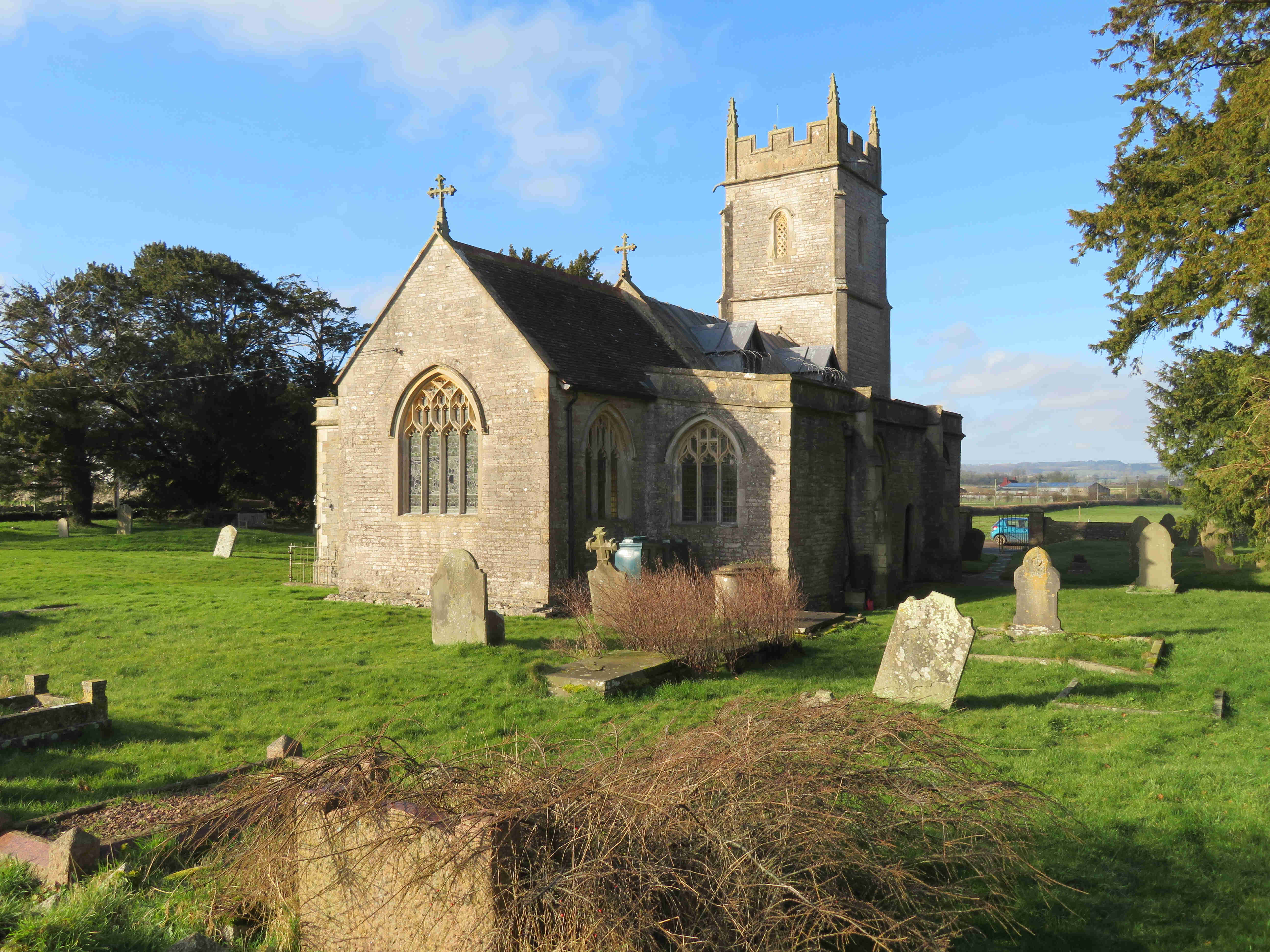
From the Imperial Gazetteer of England and Wales 1870-2 by John Marius Wilson:
STOWEY, a parish in Clutton district, Somerset; 7 miles SW by S of Keynsham r. station. Post town, Pensford, under Bristol. Acres, 814. Rated property, £1,423. Pop., 181. Houses, 40. The manor belongs to Sir E. Strachey, Bart. The living is a vicarage in the diocese of Bath and Wells. Value, £183. Patron, the Bishop of B. and W. The church is good.
The church of St Nicholas and the Blessed Virgin Mary was a chapelry of Chew Magna becoming a separate parish in the 19th century. Stowey’s wealth came from sheep and the tower has depictions of three rams rather than gargoyles and the 17th-century porch has a carving of sheep shears. On the south wall are the faint remains of mass dials; Dom Ethelbert Horne identified two: one at the west end of the southern side of the church and another on the south-east corner of the chancel. The 14th-century font has a carving of a scallop shell, possibly indicating a pilgrimage to the shrine of St James of Compostella at Santiago. There are wall-paintings from the early 20th century by Henry Strachey (1863-1940) supposedly based on local parishioners as models. (There is a memorial to the artist in the church.)
The small village of Stowey is about 400m to the north-north-west,
The church is now part of the benefice of Clutton with Cameley, Bishop Sutton and Stowey, within the deanery of Chew Magna and the diocese of Bath & Wells.
The building has been Grade II listed by Historic England.
From the Western Daily Press of Sat 10 Nov 1900 p7: “After an extensive course of restoration at Stowey Church, the re-opening ceremony was performed by Bishop Kennion.” and on p9 “A picture in itself many would remark on first making acquaintance with Stowey Church. A babbling stream jumps and tumbles alongside the churchyard wall, and might beeches and wide spreading yews wrap the little church in a sylvan mantle. But whilst the works of Nature have been gaining in added stateliness and beauty year on year, the sacred edifice they sheltered showed evidence of dilapidation and decay.” There follows a description of the improvements and the re-opening ceremony.